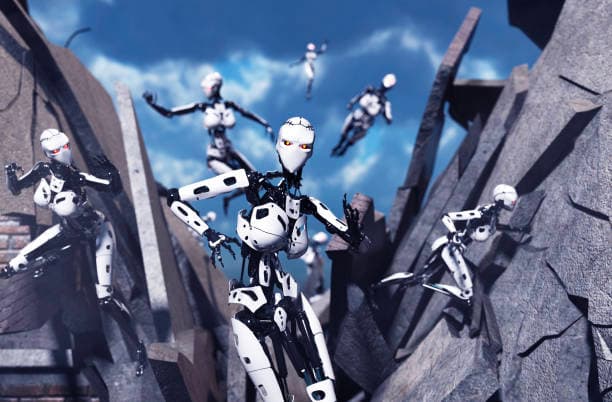In today’s fast-paced digital age, the realm of art and storytelling has undergone a significant transformation. Traditional print media is no longer the sole platform for creators to showcase their talents and narratives. Instead, we find ourselves immersed in the captivating world of webcomics and digital comics, a digital renaissance that has revolutionized the way stories are told and consumed. In this article, we will delve into the evolution of webcomics and digital comics, their impact on contemporary culture, and the exciting possibilities they hold for the future.
The Rise of Webcomics
Webcomics, a mix of “web” and “comics,” are a popular comic book alternative. Digitally accessible creations have grown in popularity, especially recently. Artists shared their comics on personal websites and forums in the early internet, sparking a digital revolution.
Webcomics’ ability to democratise storytelling and art is astounding. They provide an inclusive platform for aspiring artists and writers, unlike traditional publishing. Creators can now reach worldwide audiences with little obstacles.
Famous webcomics like “xkcd,” “Homestuck,” and “The Oatmeal” have left an everlasting influence on the medium. Webcomics has grown to include products, animations, and print versions, as well as loyal fans. Such success stories demonstrate webcomics’ longevity and influence.
Webcomics are remarkable beyond their popularity. Accessibility and affordability are their best qualities. A wide collection of content is generally free to readers. Donations or goods purchases can also help creators. Webcomics have become part of modern digital culture due to their accessibility. And if you’re looking for the best fast payout casinos in New Zealand, you’ll find that webcomics offer similar ease of access and affordability, making them an enticing choice for entertainment in the digital realm.
The Digital Comics Revolution
Digital comics have advanced alongside webcomics, which have changed the comic industry. Platforms like ComiXology have helped traditional comics become digital. Comic fans come to ComiXology for its large inventory and user-friendly layout.
Creators can now reach a global audience through digital comics. A cartoon can be translated into various languages with a click, removing cultural and language barriers. Digital comics add interaction and multimedia to the reading experience. Sound effects, animations, and hyperlinks enhance storytelling.
Diversity and Inclusivity in Webcomics and Digital Comics
Digital comics and webcomics promote diversity and inclusivity in narrative. Diversity and underrepresented creators have found a venue to share their opinions and experiences. These comics provide a new perspective on complicated social issues.
More stories about race, gender, sexuality, mental health, and identity are available, giving readers a variety of relatable stories. Webcomics and digital comics’ inclusion gives a wider audience a sense of belonging.
Challenges and Controversies
Great innovation presents unique problems. Digital comics have had copyright and plagiarism issues. The ease of digital dissemination has made protecting intellectual property and compensating creators harder. Digital comics controversies show the challenges of this fast-changing medium.

The Future of Webcomics and Digital Comics
Webcomics and digital comics will change in the future. VR and AR could give readers immersive and interactive experiences like never before. Webcomics subscription services may also grow, giving authors a steady income and fans ad-free viewing.
Finally, webcomics and digital comics have revolutionised storytelling and art. These media have democratised art and storytelling, celebrated diversity, and showcased many creative voices. Webcomics and digital comics are increasingly important in modern culture as the future holds more interesting possibilities. Explore this dynamic environment, support authors, and join the digital comics revolution.
Conclusion
In conclusion, webcomics and internet comics have revolutionised our storytelling and art consumption. Digital formats have democratised and expanded comics by giving creators a platform. Popular webcomics and digital comics are transforming culture and giving diverse voices a forum. Webcomics demonstrate that anyone with a creative vision and internet access can convey their narrative globally. This accessibility has improved the medium and led to groundbreaking webcomics. Traditional comic books have seamlessly moved to digital formats, adding multimedia narrative and interactivity. ComiXology offers several digital comics.
Additionally, webcomics and digital comics can foster storytelling diversity and inclusivity. Readers of all ethnicities have engaged with writers from diverse backgrounds who tackled important social issues. Despite their merits, webcomics and digital comics encounter challenges and controversy. Creators require ethical and legal protection from copyright and plagiarism. Webcomics and digital comics have infinite potential. VR/AR will deliver readers rich and interesting experiences. Subscription-based services may provide more revenue for producers and this vibrant cultural community.
Finally, the digital renaissance of webcomics and digital comics has transformed storytelling and given creators a voice. Digital creativity is part of current culture, not a trend. Webcomics and digital comics are wide and diverse. Support your favourite authors and embrace the exciting future of this ever-changing medium. Digital comics will continue to inspire and engage audiences.